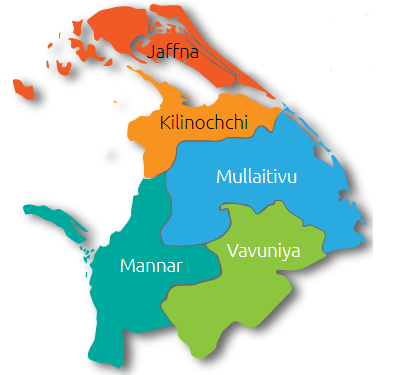The Chamber of Commerce and Industries of Jaffna is in a constant battle with the authorities to secure fuel for the agriculture and fisheries sectors and essential commodities for people hit by the economic crisis, the Jaffna Chamber Chairman Vignesh Kularatnam told the Sunday Observer Business last week.
We have been having discussions with the Governor of the Northern Province and the Ceylon Petroleum Corporation and the LIOC to set up consumer points for fuel distribution, he said.
According to the chamber head many large scale industries have closed down due to operations coming to a standstill.
Most industries are unable to sustain operations due to cash flow issues and payment of salaries to employees for the past four months, Kularatnam said.
According to media reports there had been a surge in the number of people in the North and the East taking refuge in South India during the past months. Many had to pay a huge amount to cross the Palk Straight through boats.
Jaffna is home to a large segment of the population who earn a living either in the fisheries or agriculture sector. Around one-third of the families of the Northern province depend on agriculture including livestock and home gardening.
The Jaffna chamber is grateful to chambers in Colombo and many concerned people who always inquire about the people in the North and are willing to extend a helping hand, Kularatnam said.
The situation in the country today is nothing new to the people in the North East who had gone through enormous struggles for over three decades during the battle against terrorism but the crisis is adding on to the misery of people who had not been able to raise their head even after a decade since the end of terrorism, said the Past Chairman of the Chamber K. Poornachandran.
He said around 60 percent of businesses operate and added that if the situation worsens there would be a complete shutdown.
The tourism industry, another vital sector that provided employment to youth has been adversely affected by the crisis.
He said people in the North and East have been used to tough situations and learnt to live a simple life from the decades-long terrorist activities that forced them to such a lifestyle.
Transportation has not been an issue as young and the old cycle to work and school. Most people here neither had fuel nor electricity during the battle against terrorism.
They had to put up with either lamps or candles. Many could not afford kerosene due to the high prices and it was in short supply, he said.
However, the chamber officials said they are one with the people in the South going through unprecedented problems.
We have always been in solidarity with the rest of the country whenever there has been problems and this time to feel with them, Poornachandarn said.


